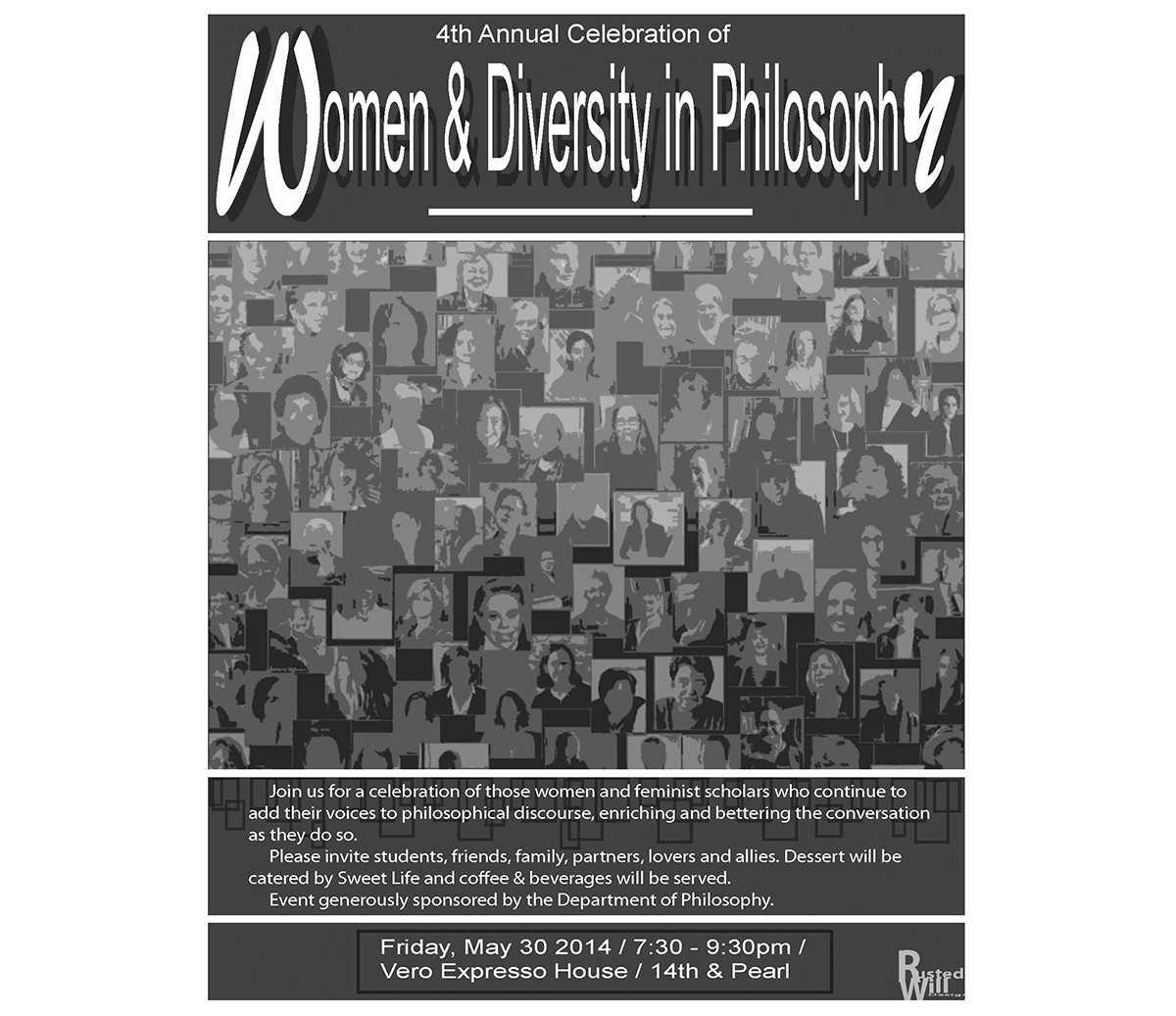
by Megan M. Burke, PhD candidate, UO Department of Philosophy
In the world of academic philosophy, feminist philosophers occupy a marginalized space. This, of course, is not unique to philosophy as most academic disciplines give marginal status to those working on issues of gender and its intersections with sexuality, class, and race.
Like most feminist scholars, those of us practicing feminist philosophy seek out spaces to do and share our work. For me, the Feminist Philosophy Research Interest Group (FP-RIG) has been one of these spaces. As a previous coordinator for the FP-RIG and an ongoing participant, this group has served as an important space for my pursuits in feminist philosophy. While there are many practices the RIG engages in—discussions, paper workshops, conference and event organizing—from my perspective, one of its most important functions is to foster visible feminist conversations within our department and beyond. This is important for members like myself to have a space to improve scholarship.
But, beyond this, it also serves to address larger issues of climate bias in relation to gender that plague the discipline of philosophy at large. In fall 2013, for instance, I coordinated, along with the assistance of members of the FP-RIG, a conference panel, “The Status of Women in Philosophy at the University of Oregon and Beyond,” at the Society for Phenomenology and Existential Philosophy. As a product of the RIG, this panel brought the issues of gender inequity and sexual harassment in philosophy to a larger philosophical audience.
The problems that feminists work to dismantle within philosophy are made visible in this way. Without this visibility the possibility for implicit bias and explicit discrimination within the vast field of philosophy would remain prevalent and go unnoticed. And within our own department, each year the FP-RIG organizes the event “Women and Diversity in Philosophy” to promote recognition of marginalized groups and marginalized work within the discipline.
While research interest groups are generally recognized for the traditional scholarship—the production of conferences, articles, intellectual discussions—to me, it is events like the ones mentioned here that make the FP-RIG of fundamental importance for feminist philosophers on campus. The space this RIG carves out for conversations and disciplinary biases, which are ultimately a part of our scholarship endeavors, contributes to the security of feminist practices within our discipline. At the same time, the visibility created by the RIG allows others to become aware of and invested in our efforts, which is vital if we are to continue to make philosophy a space for feminist philosophy.
—Megan Burke, ABD, focuses on feminist philosophy, existential phenomenology, twentieth century continental philosophy, and social-political philosophy.

